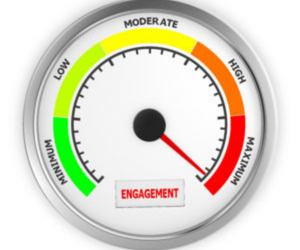Cognitive Function And Menopause
MENOPAUSE CAN IMPACT COGNITIVE FUNCTION
It’s widely recognized that menopause affects mood and sleeping. However, menopause can also have a measurable impact on how a woman performs cognitively. This includes tests used clinically for a variety of purposes, including screening for Alzheimer’s. The very good news is that a woman’s mental performance will typically bounce back when she’s past menopause.
MENOPAUSAL WOMEN WITH COGNITIVE PROBLEMS NEED REASSURANCE
Memory problems are a common and passing symptom that can accompany menopause. It would be nice to have a dollar for every woman who says, “You mean this is normal?” when reassured both that her memory problems are common at this stage in her life, and she’s almost certainly not developing Alzheimer’s Disease. it’s highly unlikely at this age that what she’s going through is anything other than temporary and relatively normal.
THE COGNITIVE DECLINE IS ESTROGEN-RELATED
We used to think that the sleep disturbances and mood changes associated with menopause were by themselves enough to explain the cognitive problems that some women experience. However, we now know that although these two factors may exacerbate the problem, the cognitive decline is really independent of them. Estrogen has an impact on memory areas of the brain, and we know, for example, that when a woman has her ovaries surgically removed, she’ll experience a memory decline that gets reversed when she’s given estrogen.
EXERCISE IS LIKELY TO HELP REDUCE HER SYMPTOMS
A number of very good clinical trials show that memory problems during menopause alleviated with exercise. This is also true for memory problems later in life. This doesn’t have to be marathon running. Moderate exercise three or four times a week for 40 minutes can make an important difference.
The exercise doesn’t have to be all at once. It can be spread throughout the day, and can include such things as walking up stairs, parking several blocks away, or just going for a brisk walk.
THERE’S A LOT OF ADDITIONAL THINGS A PATIENT CAN DO TO ALLEVIATE HER MEMORY PROBLEMS
Avoiding excess alcohol is also good for the brain. The guidelines for moderate drinking are one drink a day for women and two drinks per day for men. Binge drinking for women is defined as four drinks in 2 hours. A little bit of alcohol, particularly red wine, appears to be good for the brain but it doesn’t take much to exceed standards.
Good sleep hygiene can also help menopausal memory problems. Avoid excess alcohol and caffeine. In addition, it’s important not to be looking at screens, such as an iPhone or iPad before bed. It will interfere with normal sleep. The bright screens emit blue light, which can make your pineal gland act as if it’s daytime.
Stress and anxiety can impair memory. There is good evidence that stress reduction such as yoga can help.
Cultivating her social network may also help. We know that people with extensive social networks frequently do better on memory tests.
In the case of women who have moderate to severe night sweats or hot flashes, use of hormone therapy (HT) will probably mean better sleep and better mood. Additionally,- her memory will benefit indirectly. A variety of well-done studies show no direct benefit to memory from taking HT during menopause but those studies have not specifically enrolled women with moderate-to-severe hot flashes so we still don’t know definitively if HT has a direct benefit on brain function in women who are most likely to use HT.
We don’t have good evidence that vitamins or supplements will help with memory problems. However, there is surprisingly good data showing that a Mediterranean diet can be helpful.
WOMEN ARE GOOD AT EVALUATING THEIR OWN COGNITIVE FUNCTION
We know from cognitive tests that menopausal women’s assessments of their own memory during menopause tend to be quite accurate. If you ask a patient, “How good is your memory,” and she answers, “Good,” you can usually take her at her word because she’s highly likely to perform well on the cognitive tests. Conversely, if she tells you, “My memory is poor,” she’s likely to do poorly on the tests. This is also true of elderly women. The exception that in some cases of dementia, the part of the brain that evaluates memory has deteriorated, and in that case, the individual cannot judge her own memory.
WORRY ABOUT COGNITIVE FUNCTION MAY MOTIVATE IMPROVED LIFESTYLE
Because her memory is important to her, when you discuss the link between her lifestyle and her memory problems, this may motivate her to make changes she hasn’t made up to now.
Search Articles
Latest Articles
Ukraine’s Fate and the U.S. Election: A Perspective from the Front Lines
https://foreignpress.org/journalism-resources/ukraines-fate-and-the-us-election-a-perspective-from-the-front-lines Publication –foreignpress.org
New Life for Old Ambulances
https://foreignpress.org/journalism-resources/new-life-for-old-ambulances Publication –foreignpress.org
Prince Mario-Max Schaumburg-Lippe: Orphans International and James Jay Dudley Luce Foundation Celebrate 25 Years of Global Leadership
https://t2conline.com/prince-mario-max-schaumburg-lippe-orphans-international-and-james-jay-dudley-luce-foundation-celebrate-25-years-of-global-leadership Publication –t2conline.com
Mitzi Perdue: I Am An Assassination Attempt Survivor
Mitzi Perdue: I Am An Assassination Attempt Survivor About The PodcastThe newsmaker interviews and the news you need when time is short!
Subscribe to Updates
About Author

Mitzi Perdue is the widow of the poultry magnate, Frank Perdue. She’s the author of How To Make Your Family Business Last and 52 Tips to Combat Human Trafficking. Contact her at www.MitziPerdue.com
All Articles
One Good Idea Can Change Your Life
One Good Idea Can Change Your LifeA brief story about Ernest Henderson Do what it takes to find good ideas. The reason? One good idea can change your life. And lots of good ideas can lead to undreamed of success! Let me explain why I say this by sharing a brief story...
Be the Person Others Want to Do Business With: Be fair
Be the Person Others Want to Do Business With: Be fairThe Beginnings of the Sheraton Hotel The international Sheraton Hotel Chain grew from an investment of just $1000. My father, his brother, and his college roommate received war bonuses after their military service...
Heart Disease In Women: It’s Different
Heart Disease In Women: It’s DifferentHEART DISEASE IS A WOMAN’S DISEASE In the 1950s, we all thought heart disease was a man’s disease. However, more women are dying of heart disease than men. Also, even though the mortality rates for both men and women are...
Prevent Nightmare House of Horrors: Family Business Quarrel, Part 2
Prevent Nightmare House of Horrors: Family Business Quarrel, Part 2 To prevent a Family Business Quarrel 1. Create a culture emphasizing that family members are part of something bigger than themselves. Being too self-centered is a danger in a family business....
Preventing Nightmare House of Horrors, a Family Quarrel, Part 1
Preventing Nightmare House of Horrors, a Family Quarrel, Part 1Since you’re here reading this, the subject probably hits close to home. If so, you have my entire sympathy. If ever there’s a high stakes situation, it’s the family quarrel in a family business. I’ve had...
Four Things Frank Perdue Did to Encourage Employee Engagement
Four Things Frank Perdue Did to Encourage Employee Engagement Employee engagement is one of the most important – possibly the most important factor in an organization’s success. When I look at how Frank Perdue (my late husband) built his chicken company from a...




